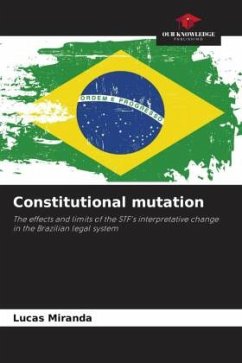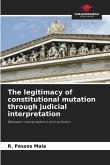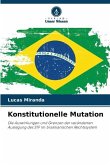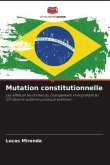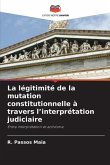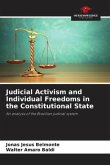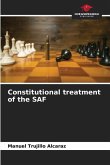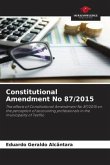Constitutional Mutation, i.e. the informal changing of the text of the constitution, has been an increasingly present phenomenon in the Brazilian legal system, above all as a result of the Supreme Court's constantly changing position, which has brought a range of consequences to the legal system. The main objective of this work, which was carried out through extensive bibliographical research, is to analyze the effects of Interpretative Constitutional Mutation operated by the Federal Supreme Court, as well as to establish the parameters to be observed by the Supreme Court when resorting to this institute. Due to the binding nature of its decisions, the position of the Supreme Court has the power to change the legal situation and existing social realities, while according to its understanding it can create or restrict rights. However, the STF's actions are not unlimited and cannot lead to an interpretation that is contrary to the legal system. They must comply with the limits imposed by the normative program and others not provided for in it, otherwise their actions will be considered unconstitutional and illegitimate.
Bitte wählen Sie Ihr Anliegen aus.
Rechnungen
Retourenschein anfordern
Bestellstatus
Storno

